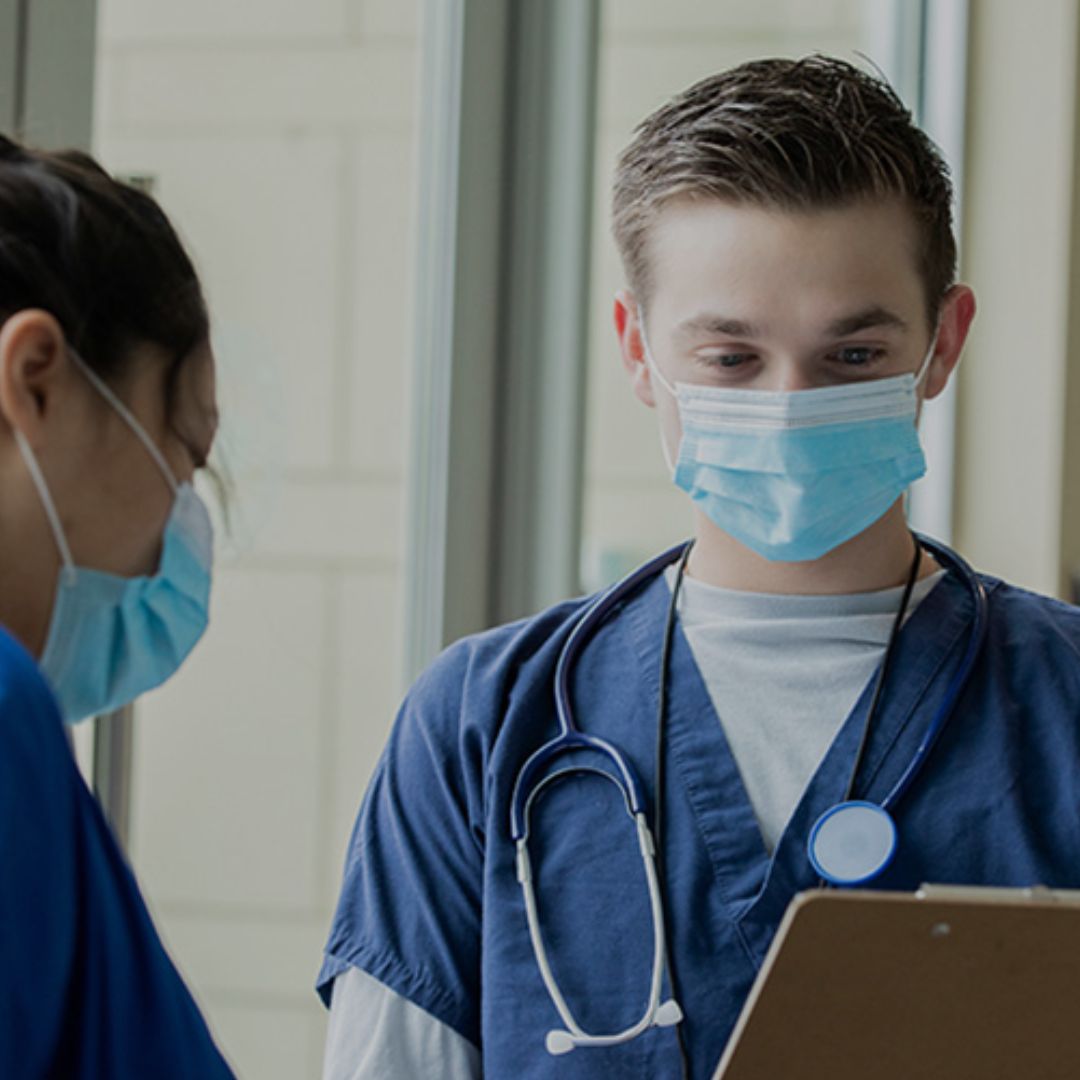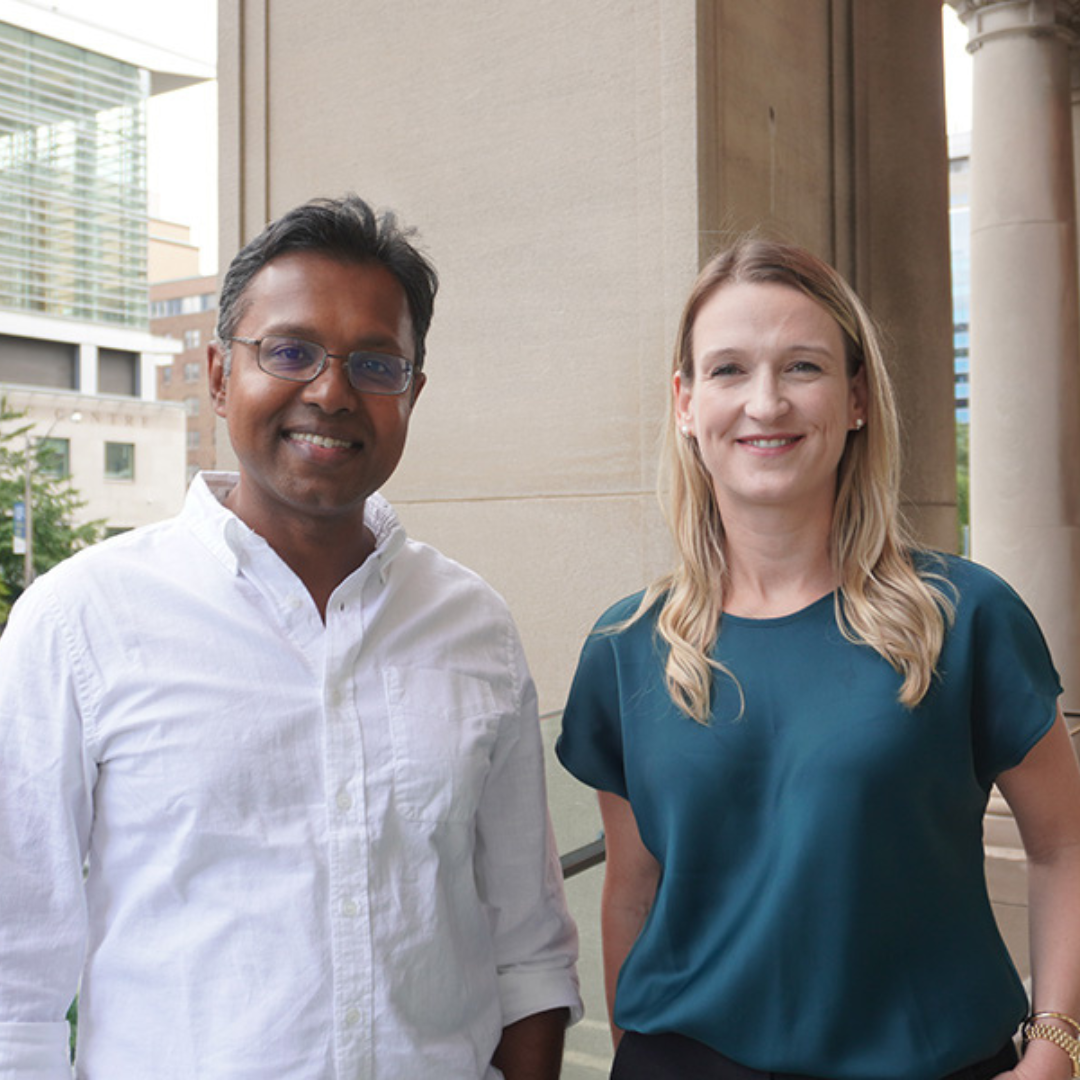Julia MacIsaac, a medical laboratory technologist (MLT) at the UHN/Sinai Health Microbiology Lab, jumped at the opportunity to expand her skills in UHN’s Chemistry Lab as part of LMP’s new cross-training initiative for MLTs. (Photo: UHN)
Among the impacts of the pandemic on healthcare human resources in Ontario, is a shortage of medical laboratory technologists (MLTs) and other lab professionals.
This shortage puts additional pressure on the Laboratory Medicine Program (LMP) at UHN, which is known for providing exceptional service. To maintain that quality for patients and clinicians, LMP has found innovative ways to upskill and resource existing staff.
“As one of the largest hospital labs in Canada, we had to find ways to meet these challenges,” says Christine Bruce, Senior Director of LMP, emphasizing the need to continue delivering care without adding strain to the health care system. “So, we looked at how we could cross-train our MLTs.”
As part of the LMP Practice Council’s “Aces in Their Places strategy,” each LMP manager is now responsible for defining one high-value task MLTs from different departments can acquire.
“This will help us maintain competency until the broader lab industry – educators, government, and advocacy groups – align on a strategy and make a change,” says Christine.
Julia MacIsaac, an MLT at the joint UHN/Sinai Health Microbiology Lab, was among the first staff members to participate in this initiative. After three years in microbiology, providing support for COVID-19 testing and bacteriology, Julia expanded her skills and accepted a part-time position in LMP’s Chemistry Lab.
This past February, she learned to perform RALI-Dx™ IL-6 Severity Triage Tests on the department’s new Squidlite machine. This test helps identify severe inflammatory response in patients with COVID-19, and aids in determining the risk of intubation with mechanical ventilation.
Developed in collaboration with clinical leaders at UHN, this test received approval from Health Canada in 2022. The UHN Core Lab was approached in December 2022 to conduct a research implementation study to evaluate its usefulness.
“We needed extra support to get this test validated very quickly,” says Dr. Vathany Kulasingam, Division Head, Clinical Biochemistry. “Julia helped support 24/7 coverage and rapid turnaround time.”

The new Squidlite machine went live at Toronto General Hospital’s Core Lab in January of this year.
“It’s great to get exposure to different disciplines because we learn it all in school and it’s a waste not to use it,” says Julia. “It can also be useful across disciplines, now that I’ve been trained on the Alinity machine here.
“Now, I would be better prepared if I decided to go into virology in microbiology, as I have a deeper understanding of the machines, quality control procedures, and reagents involved.”
In addition to cross-training MLTs, LMP has created a new way for medical laboratory assistants (MLAs) to expand their skill sets
In a novel approach, LMP has created the advanced laboratory technician role. This will enable MLAs under a medical directive of the hospital to perform duties typically performed by MLTs.
This summer, MLAs will be able to apply for a biochemistry micro-credential offered by the Michener Institute of Education at UHN, starting in September. LMP will sponsor the participation of 15 eligible employees.
“We recognize the depth of talent they have and want to find ways to promote them and support their career development,” Christine says. “It’s a long-term resource strategy and an employee enrichment strategy.”


